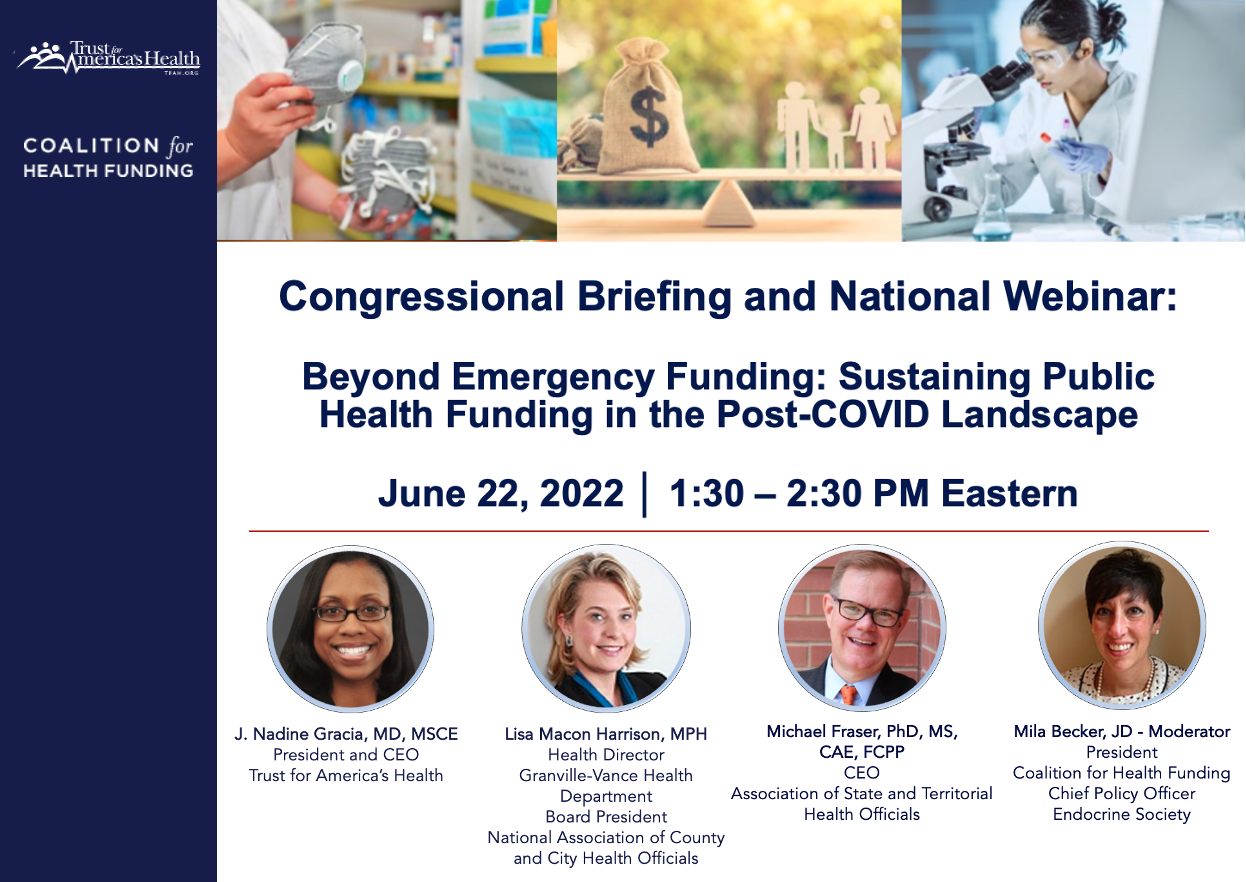
This briefing explores the findings from TFAH’s recent report, which found obesity rates continue to climb nationwide and within population groups. 19 states had adult obesity rates at 35% or higher, up from 16 states the previous year. These persistent increases underscore that obesity is caused by a combination of factors including societal, biological, genetic, and environmental, which are beyond personal choice. Addressing the obesity crisis will require attending to the economic and structural factors of where and how people live.
Panelists discussed the latest data on obesity and its impacts, promising approaches to ensure healthier communities, and offered policy recommendations that can help all American lead healthier lives.
Resources:
Trust for America’s Health
The White House:

Deaths associated with alcohol, drugs, and suicide took the lives of 186,763 Americans in 2020, a 20 percent one year increase in the combined death rate and the highest number of substance misuse deaths ever recorded for a single year. These data are part of a report releasing today, Pain in the Nation: The Epidemics of Alcohol, Drug, and Suicide Deaths, the latest in a series of reports tracking the nation’s deaths of despair crisis produced by Trust of America’s Health and Well Being Trust.
No single program or policy will be a cure-all to address these issues. Instead, a comprehensive approach that focuses on the underlying causes of these deaths of despair can help heal individuals and communities and make them more resilient.
Resources:
Trust for America’s Health
Well Being Trust

With Congress having spent billions of dollars fighting COVID-19 since early 2020, why should we increase annual funding for public health when we have so many other competing priorities?
TFAH and the Coalition for Health Funding convened experts in public health policy and funding to clearly explain the need for robust, sustainable public health funding and how it must be considered separately from the COVID-19 emergency.

As the nation enters its third year of the COVID-19 pandemic, this year’s report calls for urgent investment to create a public health system able to protect all Americans’ health during emergencies. The report measures states’ degree of preparedness to respond to a wide spectrum of health emergencies and to provide ongoing public health services.
A panel of subject matter experts discussed the nation’s readiness for public health emergencies, examined the findings of the report, and discussed key recommendations for policymakers.
Resources:
Trust for America’s Health
Office of Minority Health, Centers for Disease Control and Prevention
Articles shared by Céline Gounder, MD, ScM, FIDSA



